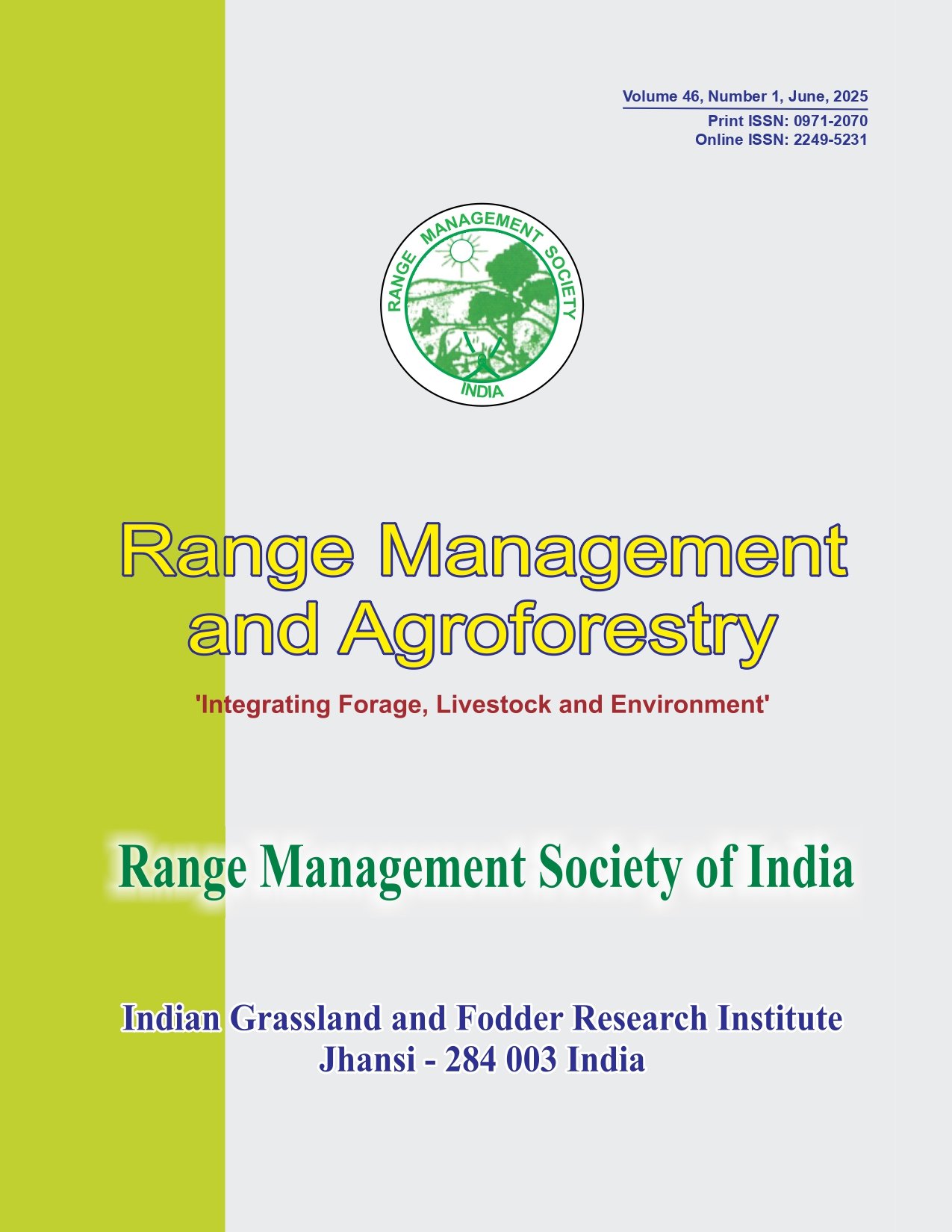Qualitative study of corn silage of cattle farms in subtropical conditions of Indo-Gangetic plains
Keywords:
Corn silage, Cultivars, Qualitative attributes, Subtropical conditionsAbstract
A field investigation programme was carried out under front line demonstrations of silage making in border area of Tarn Taran district of Punjab, India. A total of 21 dairy farmers were selected from three blocks in the district and they were guided about the management of agronomic practices for raising quality corn fodder and ensiling with preparation of silages considered as S1 to S21. The data was recorded with respect to maize hybrid grown, stage of harvesting (days after sowing), days taken to fill the silo pit and days of ensiling. After the opening of silo pit, representative samples of silage were collected from all dairy farms and quality analysis of these were carried out for attributes such as pH, dry matter, crude protein, NDF, ADF, ADL and ammonia-N. The study showed that corn harvested by using single row maize harvester at milk stage, packed in silo pit within two days and ensiled for minimum 45 days resulted in values of pH, dry matter, crude protein, NDF, ADF, ADL, ammoniaN as % of total N and buffering capacity, which were within the optimum range. Thus, it was concluded that in order to prepare quality silage, the crop should be harvested at milk stage i.e., on an average at 72 days after sowing (DAS). The crop should also be harvested using single row maize harvester to ensure filling of silo pit within two days and fodder should be ensiled for minimum 45 days.




